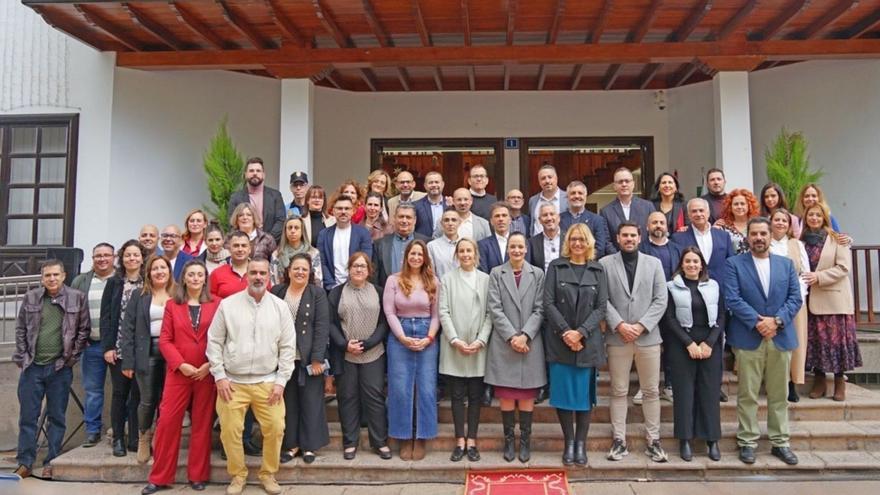
The first 38 municipal employees take office who benefit from the personnel stabilization process in the Arona City Council. These are workers who have been carrying out their tasks for the City Council and the municipality for years in thirteen categories.. The measure reduces the temporality in the employment 8%. It means transforming, in total, 130 vacant positions occupied by interim or temporary civil servants in career civil servants or permanent civil servants in 30 categories, 25 procedures for competition and five for opposition competition, according to the local government.
In this first round, they held 18 contests and seven are planned for the month of January. The five competitive examinations, which affect 20 people, will be held throughout 2024. From all these procedures, reserve lists will be obtained that will make it possible to make personnel replacements more agile and improve the quality of services.
The mayor of Arona, Fátima Lemes, highlighted that the stabilization process “Not only is it a historic and very important process for the employees, but for the Arona City Council and for the municipal government’s purpose of improving conditions, of creating solid foundations for the municipality to move forward and function much better.”
Devi Pereyra, Councilor for Human Resources, thanked the beneficiaries for “the daily effort, responsibility and commitment to the institution.” “Let’s continue working on this path to offer the services and attention that Arona deserves.” This procedure “is a historical milestone “which puts us at the starting point, with an orderly house and to plan and improve the human resources of our City Council, a basic tool to meet our objectives and, above all, maintain quality services to citizens.”
The stabilization process comes to comply with one of the ten lever policies of the Recovery, Transformation and Resilience Planwhich is the modernization of public administration to improve the efficiency of human resources in the public administrations, reducing high levels of temporary employment, and also preventing and punishing abuse and fraud in temporary employment, and establishing tools for better personnel management. It also complies with the doctrine of the Court of Justice of the European Union (CJEU).















